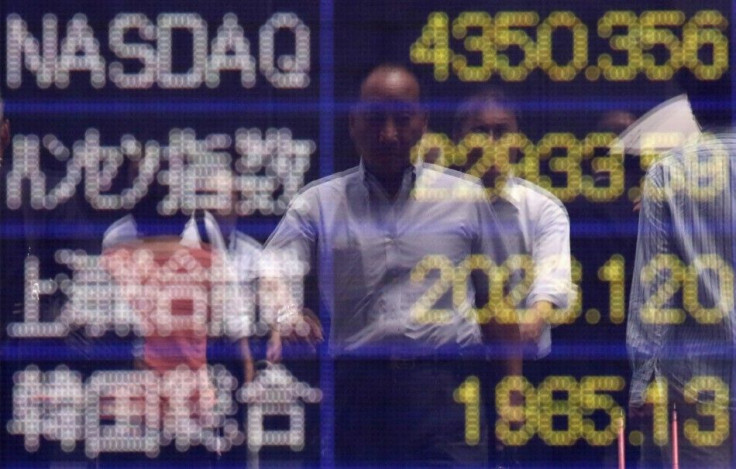Global Markets Overview – November 5, 2014

November trade patterns
November is always a dull month in the world of trading. US earnings season has passed, investors start to think about the new year and most macro influences slow down to a trickle.
The low-news, low-trade environment tends to see November as a month trading to the downside through no fault of its own. Historically, low-volume environments outside of the Christmas period produce this kind of trade pattern and I would expect nothing less this year, with the Australian banks turning ex-dividend and energy prices continuing to fall through the floor, as well as US markets beginning to switch off.
I also believe that the current mid-term elections in the US (normally a source of volatility and trade movements in US markets) will be a non-event. Considering only 40% of the country votes, this will pass without a fuss in the main.
The Republicans look certain to take control of the Senate. This would mean both the House and the Senate are now controlled by the Republicans, which may actually be seen as a positive as legislation could pass more easily. Currently, the House passes legislation which then gets watered down or rejected by the Senate.
Two years in US politics is an eternity. However, if the Republicans are going to win the Presidential elections in 2016, stronger leadership by the party is needed. They now have an opportunity to illustrate that leadership with the control of both houses. Having said that, considering the current crop of candidates for Republican nomination are rank outsiders (according to the bookmakers), it's an uphill task.
So with the US election providing no real drive either, the heat from the October trade period is likely to cool. This will likely see the US markets easing up as they have completely retraced the September pullback.
Looking to the other side of the Atlantic, there are reports coming out of Europe that the Eurozone's individual nations' central bankers are looking to challenge Mario Draghi over his management and leadership style at the ECB. The most quoted source of angst is the fact he set a target for increasing the ECB's balance sheet immediately after the policy-making governing council explicitly agreed not to make any figure public.
If Draghi is challenged and his path to balance sheet expansion is interrupted by members' central banks, the European markets may buck the November trade patterns and see some interesting volatility. Trade overnight certainly suggests that any form of disruption to the ECB's plans will be detrimental to equity markets.
Ahead of the Australian open
With the ASX back to normal trading conditions after the Melbourne Cup break for Victoria, most investors will be looking to the markets rather than the horses and trade should be fluid. We're currently calling the ASX 200 dead flat at 5519. However, there is a slight downward bias considering the moves in commodity markets overnight.
The CBA is providing a quarterly update and may provide further insight as to how the banking space is faring. Considering most results have been buoyed by falling bad and doubtful debts, the market will be looking for increased trading revenues to push the sector higher.
Asian markets opening call | Price at 8:00am AEDT | Change from the Offical market close | Percentage Change |
Australia 200 cash (ASX 200) | 5,519.30 | -1 | -0.01% |
Japan 225 (Nikkei) | 16,959.50 | 98 | 0.58% |
Hong Kong HS 50 cash (Hang Seng) | 23,869.60 | 24 | 0.10% |
China H-shares cash | 10,715.40 | -12 | -0.12% |
Singapore Blue Chip cash (MSCI Singapore) | 370.17 | 0 | 0.12% |
US and Europe Market Calls | Price at 8:00am AEDT | Change Since Australian Market Close | Percentage Change |
WALL STREET (cash) (Dow) | 17,378.20 | 31 | 0.18% |
US 500 (cash) (S&P) | 2,012.15 | -3 | -0.17% |
UK FTSE (cash) | 6,484.10 | -6 | -0.10% |
German DAX (cash) | 9,218.40 | -42 | -0.46% |
Futures Markets | Price at 8:00am AEDT | Change Since Australian Market Close | Percentage Change |
Dow Jones Futures (December) | 17,315.50 | 40.00 | 0.23% |
S&P Futures (December) | 2,007.38 | -2.50 | -0.12% |
ASX SPI Futures (December) | 5,501.00 | 3.50 | 0.07% |
NKY 225 Futures (December) | 16,987.50 | -35.00 | -0.21% |
Key inputs for the upcoming Australian trading session (Change are from 16:00 AEDT) | Price at 8:00am AEDT | Change Since Australian Market Close | Percentage Change |
AUD/USD | $0.8739 | 0.0012 | 0.14% |
USD/JPY | ¥113.620 | 0.095 | 0.08% |
Rio Tinto Plc (London) | £29.72 | 0.02 | 0.08% |
BHP Billiton Plc (London) | £16.22 | 0.11 | 0.68% |
BHP Billiton Ltd. ADR (US) (AUD) | $33.72 | -0.30 | -0.87% |
Gold (spot) | $1,168.30 | 1.35 | 0.12% |
Brent Crude (December) | $82.85 | -1.41 | -1.67% |
Aluminium (London) | 2060 | -17.00 | -0.82% |
Copper (London) | 6648 | -87.00 | -1.29% |
Nickel (London) | 15238 | -517.00 | -3.28% |
Zinc (London) | 2257 | -54.00 | -2.34% |
Iron Ore (62%Fe) | $78.01 | -0.62 | -0.79% |
[Kick off your trading day with our newsletter]
More from IBT Markets:
Follow us on Facebook
Follow us on Twitter
Subscribe to get this delivered to your inbox daily





















